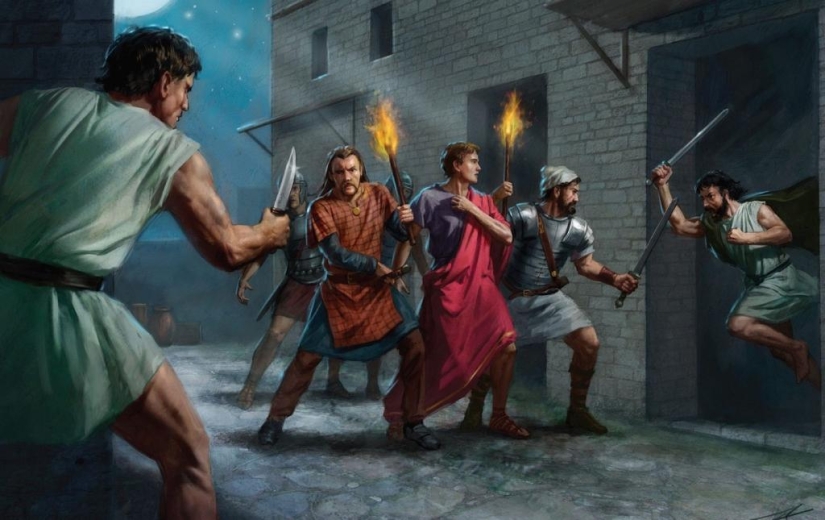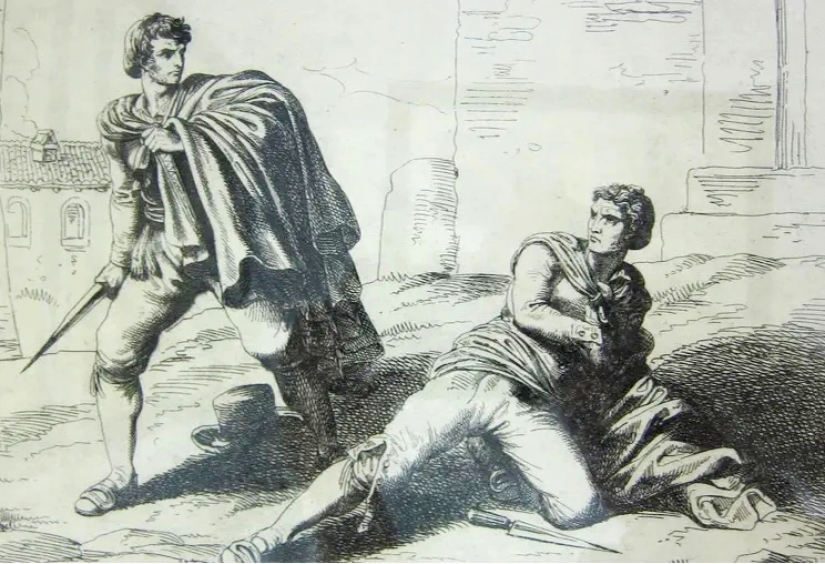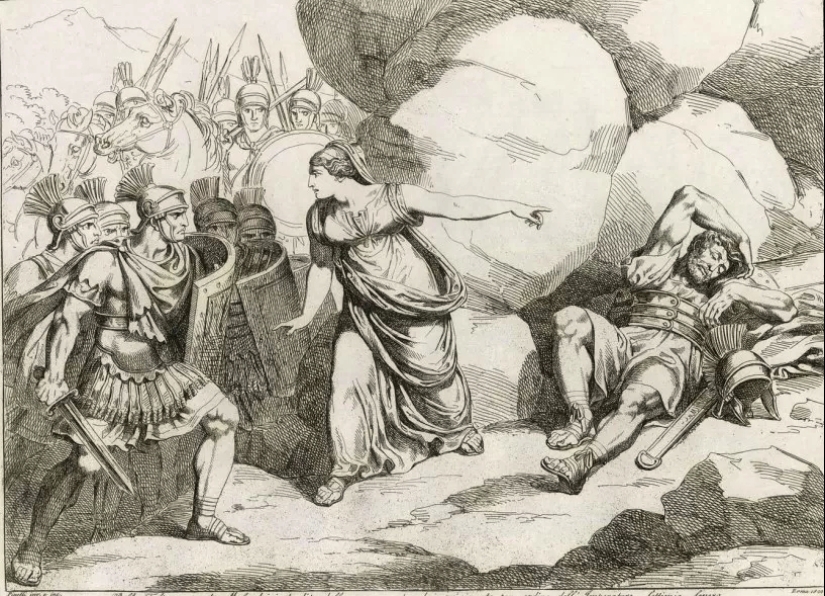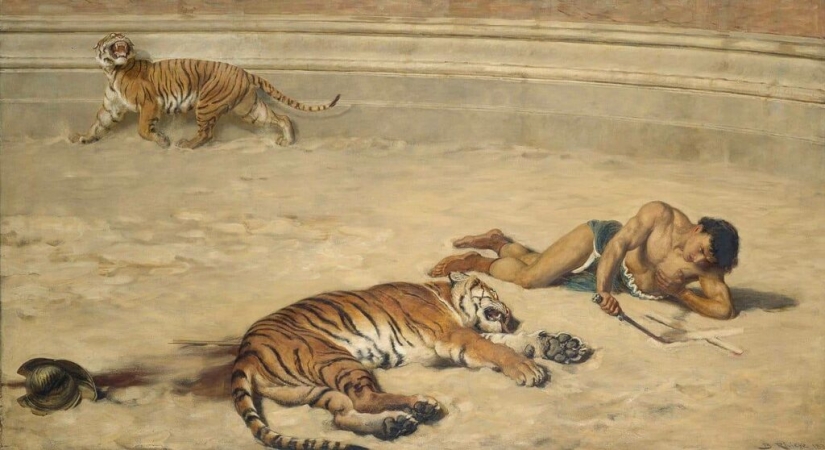The Noble Robber Bulla Felix: The History of an Ancient Roman Criminal Gang
Categories: History
By Pictolic https://mail.pictolic.com/article/the-noble-robber-bulla-felix-the-history-of-an-ancient-roman-criminal-gang.htmlWhen people think of the mafia, they immediately think of the Italian crime clans that skillfully balance brutality and popular support. But the principles by which the mafia operates were born long before the emergence of the Sicilian cartels. Even in ancient Rome, there were gangs that used similar tactics. The most famous of these criminals was Bulla Felix, a man who managed to create an entire criminal empire and become a legend.

Many Roman authors mentioned the deeds of Bulla Felix. But the most detailed description of his life and death was left by a contemporary of the robber - the historian Dio Cassius, who lived in the 3rd century AD. In his work "Roman History" he devoted many lines to the hero. By the way, the real name of this man is still unknown. Bulla Felix is a nickname consisting of two Latin words: "bulla", which means amulet or talisman, and "felix", that is, happy.

Bulla Felix was born into a poor family in the port city of Brundisium. Historical chronicles do not tell us about his youth, but it is known that by the time he appears in records he was already an adult, physically strong and very charismatic man. He combined intelligence, courage and incredible cunning - qualities that allowed him to become the leader of the largest criminal network of ancient Rome.
Bulla Felix's gang numbered about 600 people. But, unlike typical bandit gangs, it was a ramified and carefully organized network. In fact, Felix controlled two groups. The first was a mobile unit operating on the roads. The second was ordinary Roman citizens: artisans, peasants, merchants, slaves. They lived an ordinary life, but at the right moment, on the orders of the leader, they took up arms.

The main area of their activity was the famous Appian Way, a key artery connecting Rome and Brundisium. Robberies on it were put on stream, but even in the crimes of Bulla Felix one could read a peculiar ethic. He strictly punished cruelty, did not offend the weak and the poor, and sometimes even helped those in need.
Bulla Felix avoided bloodshed and even tried to make the robberies "comfortable" for the victims. The merchants were robbed only of money and valuable goods, but they were not left destitute. After all, if the merchants went bankrupt, who would carry the next caravan?

His policy towards artisans was especially interesting. He did not capture or force captured blacksmiths, tailors and jewelers to work, but offered them work. They made weapons, armor, clothing – and received generous payment for this. Many later voluntarily became Bulla's allies.
In addition to his mastery of organized crime, Bulla Felix was also incredibly inventive. He once forged documents and posed as a Roman official to get two of his men out of prison. Another of his scams deserves a place in textbooks on deception tactics.
The robber came to the centurion and offered to give himself away for a large reward. The unsuspecting soldier agreed, but when he arrived at the meeting, he found himself in a trap. Bulla captured him, but did not kill him. He simply took his money and weapons, and then said with a smile:

It goes without saying that Bulla Felix and his gang became a real thorn in the side of Emperor Septimius Severus. From time to time, several members of the gang were captured, but they never gave up their leader. Many simply could not do so, even if they wanted to. They had never seen the legendary bandit and received their orders through a long chain of intermediaries.
But despite his bravery, daring and resourcefulness, Bulla Felix was still caught. And, as often happens, a woman was his undoing. The robber never missed a chance to start an affair, and often acted extremely recklessly. He had a lover - a married lady. One of the Roman tribunes contacted her husband, who helped track down the lovers.

Roman soldiers arrested the elusive bandit in a cave while he was making love to another man's wife. Bulla Felix was taken in chains to Rome, where he stood trial. Dio Cassius described the conversation between the captured leader and the prefect Papinian before his execution. The official asked him: "Why did you become a bandit?" Bulla Felix replied: "And why did you become a prefect?"
The noble robber was put to a cruel death - thrown into the arena to be torn apart by wild animals. Many of his comrades were caught and executed, but many managed to escape. The remnants of Bulla Felix's gang continued to cause problems for merchants on the Appian Way for a long time. But it was no longer an organized, united group and over time the gang ceased to exist.

Do you think that Bulla Felix can be called a noble robber, or is this just a romanticization of a criminal?
Recent articles

Artist Benjamin Grant pays special attention to the pictures of our planet from above. But it shows he is not the wild and ...

We are used to the deer being a big, proud and sometimes noble animal. An adult male is quite capable of standing up for himself ...

Many directors add subtle hints of paintings by famous artists to their films, and they do it masterfully. They can be associated ...